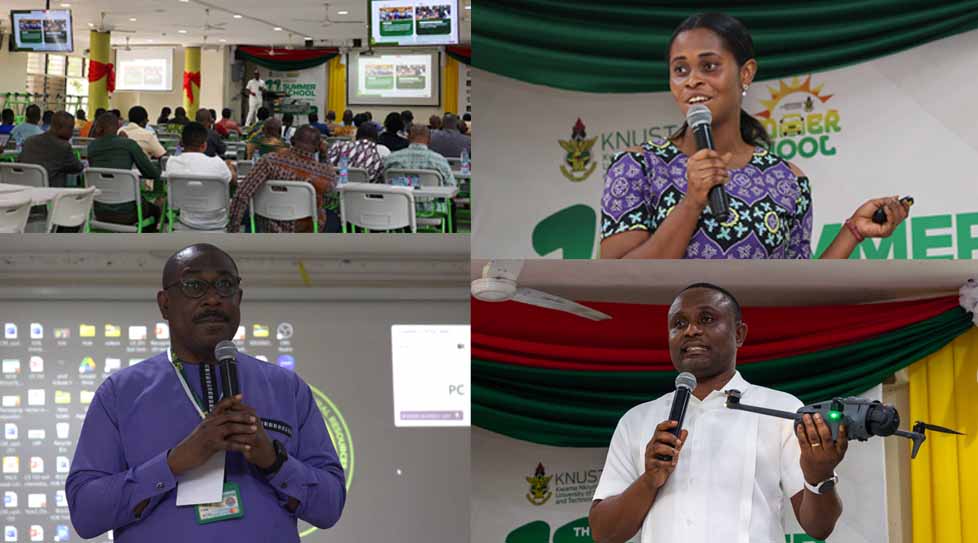Artificial Intelligence (AI) has the potential to transform agriculture and natural resource management by reducing costs and enhancing precision, according to Professor Dadson Awunyo-Vitor, Provost of the College of Agriculture and Natural Resources (CANR) at the Kwame Nkrumah University of Science and Technology (KNUST).
“This summer school is very important because we are at a point where we cannot leave artificial intelligence behind, particularly in our fields of agriculture and natural resources,” Prof. Awunyo-Vitor said at the opening of the 11th KNUST Summer School.
“Farmers will only accept our innovations and technology when they realise that it reduces their costs. Artificial intelligence has the potential to deliver that. This is the right time to explore how we can use AI to improve education in precision agriculture and natural resource management.”
The session, hosted by the College of Agriculture and Natural Resources, explored how AI can be applied to modernise agricultural education and practice.
Vice Dean of the Faculty of Agriculture, Prof. Nana Ewusi-Mensah, urged educators to move away from traditional teaching methods and adopt adaptive, AI-driven learning models to personalise instruction and improve outcomes.
“If we want to go by the traditional method, that’s fine, but it will take a long time to make progress. If we leverage AI and work within its framework, this transformation becomes much easier,” he said.
Prof. Ewusi-Mensah described the future of education as one of “augmented intelligence,” where human and machine capabilities complement each other.
“Our minds must work alongside the mind of the machine,” he said, stressing that AI should empower teachers rather than replace them.
He also highlighted AI’s potential to address Africa’s pressing challenges in agriculture and food security. “According to the World Bank, Africa’s population will reach about 2.5 billion in the coming years. Strategically, we need to start discussing innovative ways to feed ourselves. This is why AI is so important,” he said.
Dr. (Mrs.) Francisca Adoma Acheampong, the second speaker, discussed institutional readiness for AI adoption and introduced an AI Readiness Score Calculator, a tool for assessing how prepared staff are to integrate AI into academic and administrative processes.
“AI has huge transformative benefits in the digital world,” she said. “But we should be clear-eyed about the pilot processes. It’s important to engage stakeholders, understand their specific needs, and design solutions that respond directly to those needs.”

















